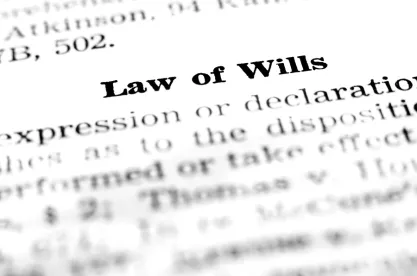It is not uncommon for testators to execute Wills or to change existing ones close to the time of their death. What is more unusual, however, is when Wills are signed merely days or even hours immediately prior to their death. Under such circumstances, it renders it likely that a challenge might be levied against the validity of a Will if the changes deviate substantially from a previous Will which pre-dated the one that was signed when the decedent was in medical distress. Typically, it is the burden of the contestant who seeks to challenge the validity of a Will to demonstrate that the decedent lacked capacity to sign the Will. Under such circumstances, however, that burden can be shifted to the proponent of a Will to establish its validity.
In an old New Jersey case, Hildreth v. Marshall, the court explained that if there is evidence that a person was in medical extremis at the time that they signed their Last Will and Testament, there must be proof by clear and convincing evidence that the document was read to the testator and that he/she fully understood its character and contents. This well-established standard could shift the burden of proof to the proponent of a Will to establish its validity if the Will is challenged. This burden shifting would greatly favor the contestant of the Will, as the burden to demonstrate its validity would be difficult for the proponent to satisfy, and further, it would ensure that the contestant could seek to have any counsel fees he incurs in challenging the Will paid by the Estate.
Ultimately, whether the decedent had the requisite capacity to execute a Will when they were in medical extremis depends upon the available medical records, treating physician testimony, expert testimony, and fact witness testimony. Such a determination would likely require a trial on the merits, however, in the context of probate litigation may render the matter ripe for settlement between the parties to the Will contest in light of the battle that would be required. As such, when a challenge is levied as to the validity of a Will and there may be a question as to the decedent’s capacity to execute the document, it is important to review the circumstances under which the Will was executed, as well as the relevant medical records which might result in shifting the burden of proof. Such facts could result in a profound advantage being given to a party challenging the Will if evidence exists that the Will was executed by the decedent when he/she was in medical extremis.



 />i
/>i

